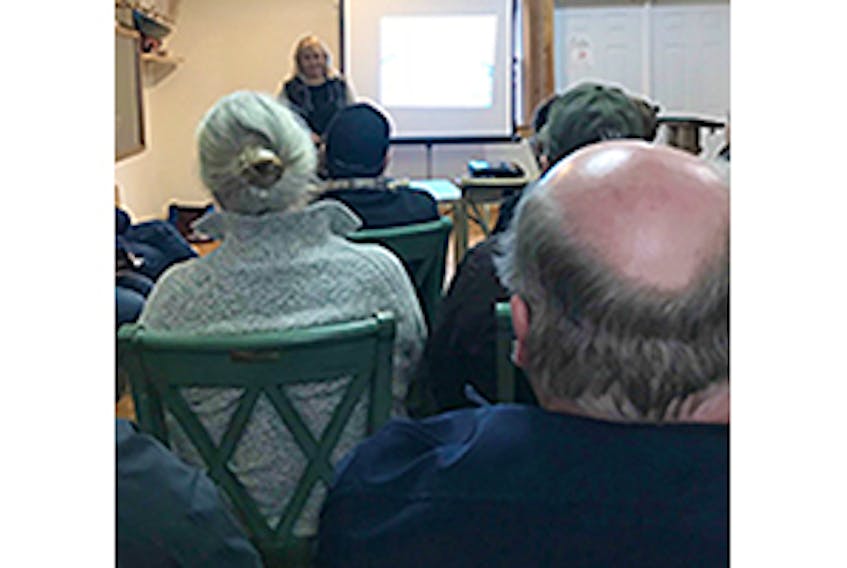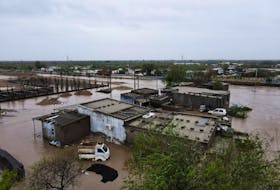People opposed to Northern Pulp’s proposed effluent treatment facility replacement met to talk about their concerns Sunday in Pictou.
The Pictou West NDP hosted the info session on Northern Pulp’s proposed effluent pipeline, which included a presentation by the Friends of the Northumberland Strait community group, comments from Ron Heighton, president of the Northumberland Fishermen’s Association, as well as Lenore Zann as environment critic for the province.
“We had standing room only,” said Erinn Wright, president of the Pictou West NDP.
She said the Pictou West NDP had decided to host the event to provide a forum for the no pipe side.
“Northern Pulp had offered a number of open house info sessions, but we felt we needed to have an open house for the other side of the issue,” Wright said.
Zann said it was great to have a chance to talk with everyone.
“The entire room came out in solidarity saying that they’re not going to let a pipe be put in the Strait,” Zann said. “That was the main message.”
Zann said that Northern Pulp has been putting out a lot of messaging about their proposed project, but she believes “there are bits of truth that have not been included. They’re picking and choosing information.”
The Truro-Bible Hill NDP MLA said she had previously listened in on a conference call her caucus held with Northern Pulp, but there were some issues she believes weren’t fully explained.
A primary concern of lobster fishermen is the effect the effluent could have on lobster larvae.
“Lobster larvae are very sensitive to the temperature of waters,” Zann said. “An already warming ocean is now going to have hot water from the pulp mill being pumped into the strait directly.”
The temperature combined with the fact that it’s fresh water are both of serious concern to the fishermen.
A preliminary receiving water study produced by Stantec for Northern Pulp says that the temperature of water from the pipe will be within a degree of the receiving water within eight metres and that the salt content will be essentially the same as the receiving water within 100 metres, which would meet with current environmental standards.
“I think the environmental standards need to be much stricter,” Zann said. “They need to have more teeth.”
Sweden, Norway and Germany are now leading the way with stricter rules and regulations and Canada is falling behind, she said.
“We’re falling far from our duty to protect,” she said. “Why are we allowing multi-billion dollar companies to come into Nova Scotia and to pollute our land without repercussions? I don’t think it’s right.”
Zann said she doesn’t believe it has to be either/or when it comes to the fishing industry and Northern Pulp.
“You can have jobs and you can have a healthy environment,” she said.
While Northern Pulp management and the engineering firm hired to design a new treatment facility say that a closed loop system is impossible for a bleached kraft pulp mill like Northern Pulp, Zann believes there has to be a way to treat the effluent without impacting Boat Harbour or the Northumberland Strait.
“I just think that in this day and age the idea of flushing our troubles away in the ocean are long past.”
She believes the long-term consequences of going ahead with this project as proposed could be disastrous for both the tourism industry as well as the fishing.
For example she said a study done in the area of Boat Harbour that showed mussels developed leukemia. She worries that the potential of shellfish being contaminated in the Northumberland Strait could damage Atlantic Canada’s strong reputation.
“What’s that going to do for the brand of our seafood?”
If the project can’t be done right, she believes it shouldn’t be done at all.
“Look to Germany and those countries that are way ahead of us in this game. The just have to do it in the right way. That way we can keep the jobs and have a healthy environment.”









